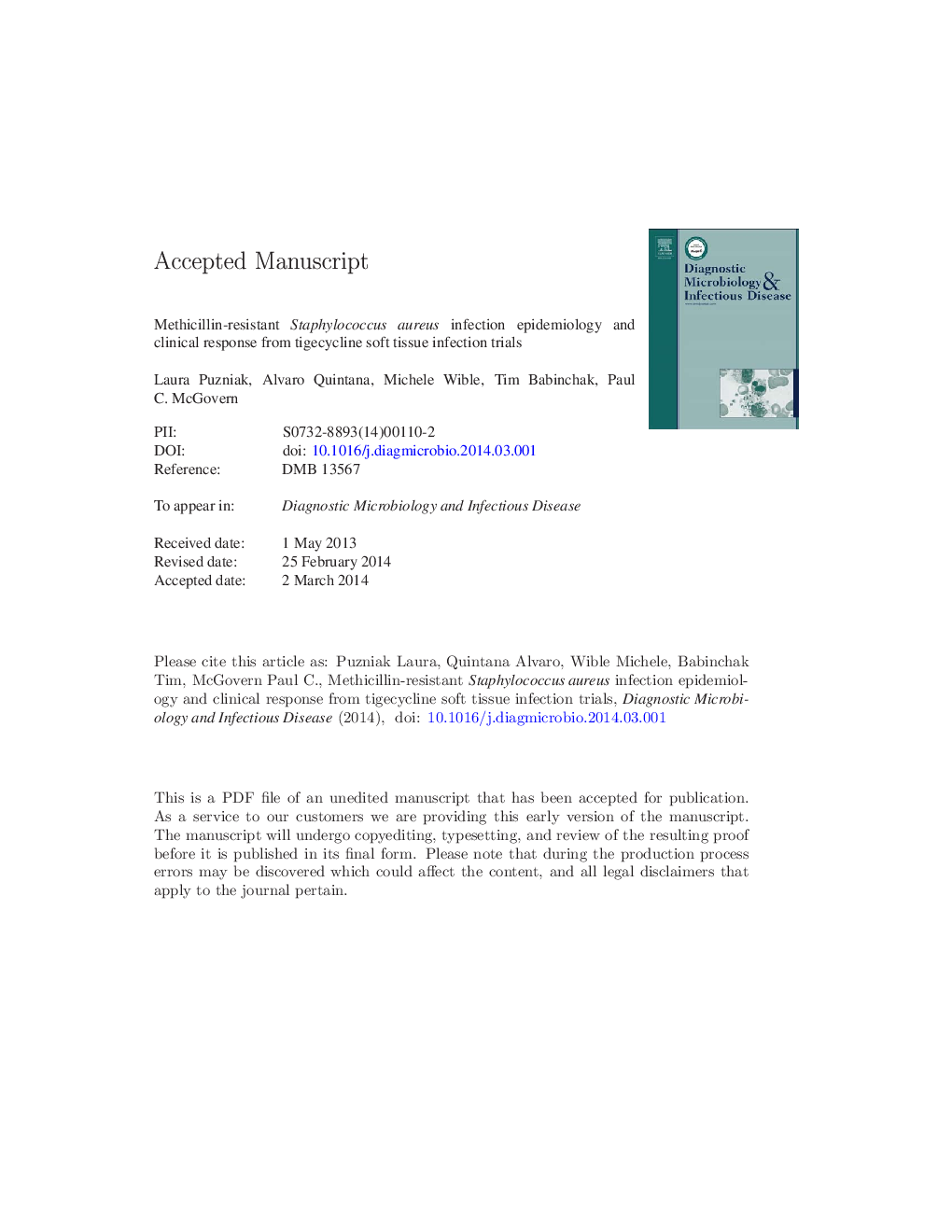| Article ID | Journal | Published Year | Pages | File Type |
|---|---|---|---|---|
| 6115858 | Diagnostic Microbiology and Infectious Disease | 2014 | 21 Pages |
Abstract
Given increasing resistance, therapeutic options to treat MRSA soft tissue infections should be evaluated. This pooled analysis evaluated data from subjects enrolled in 6 tigecycline clinical trials with documented MRSA complicated skin and skin structure infections or diabetic foot infections (DFIs). Baseline characteristics were compared between subjects with and without molecularly classified community-acquired (CA) MRSA, specifically staphylococcal cassette chromosome mec (SCCmec) IV. Clinical response was compared by CA-MRSA designation and treatment group. A total of 378 subjects with MRSA soft tissue infections were identified, including 79 with DFI. A total of 249 (65.9%) were molecularly classified as CA-MRSA. Clinical response rates for MRSA soft tissue infection were similar between tigecycline and vancomycin (treatment difference, 1.0%; 95% confidence interval: â9.3, 12.0) as well as by infection type, SCCmec, and Panton-Valentine leukocidin (PVL) status. Tigecycline demonstrated comparable efficacy for treatment of MRSA soft tissue infections regardless of infection type, SCCmec, or PVL status.
Keywords
Related Topics
Life Sciences
Immunology and Microbiology
Applied Microbiology and Biotechnology
Authors
Laura A. Puzniak, Alvaro Quintana, Michele Wible, Tim Babinchak, Paul C. McGovern,
